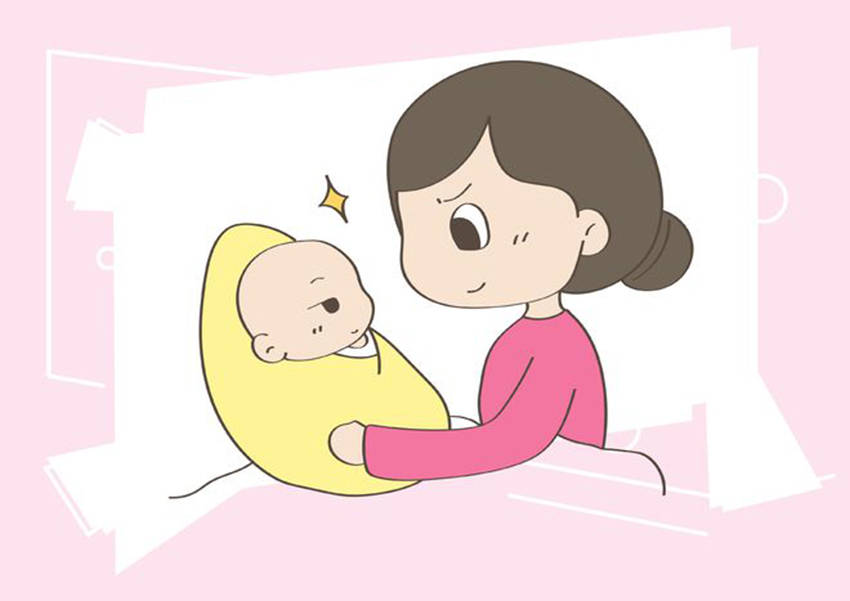Everyone knows that the endometrium is the greenhouse for the growth and development of the fertilized egg. Once a woman injures it for various reasons, making it very thin, the fertilized egg cannot implant in it, leading to consequences such as infertility and miscarriage.
The endometrium consists of a “functional layer” and a “basal layer,” with the functional layer on the surface and the basal layer deeper. The layer that periodically sheds and turns into menstruation is the functional layer, which is responsible for preparing for the implantation of the fertilized egg. After menstruation ends, a new functional layer forms over the basal layer, and this cycle repeats. Due to this periodic proliferation and shedding, the thickness of the endometrium changes with the menstrual cycle. According to these different changes, it can be divided into three phases: menstrual phase, proliferative phase, and secretory phase.
Menstrual Phase
Generally from days 1 to 5 of menstruation. At this time, with the rapid decrease of estrogen and progesterone, the endometrium sheds and bleeds, with a thickness of about 1-4 millimeters.
Proliferative Phase
Generally from days 5 to 14 of menstruation. During this period, the endometrium thickens rapidly, generally increasing in thickness from 4 millimeters to 14 millimeters.
Secretory Phase
Generally from days 15 to 28 of the menstrual cycle, which is around the ovulation period. At this time, conditions are favorable for the implantation of the fertilized egg, and the thickness of the endometrium can reach 7-14 millimeters.
What is the normal thickness of the endometrium?
If a woman’s endometrium thickness is between 8-12 millimeters, congratulations, it is very suitable for pregnancy; if it is less than 7 millimeters, it is classified as a thin endometrium; if it is less than or equal to 5 millimeters, it is classified as an ultra-thin endometrium; if the thickness of the endometrium is greater than 18 millimeters, it is classified as endometrial hyperplasia.
Is thickness of the endometrium being too thick or too thin detrimental to normal conception for women, making it difficult for in vitro fertilization to implant as well?
The answer is: yes. Endometrial hyperplasia is a common gynecological disease that can cause infertility, irregular menstruation, **bleeding, and many other harms. There are many causes of endometrial thickening, including ovarian dysfunction, imbalanced estrogen secretion, obesity, etc.
The thinning of the endometrium is mostly due to improper abortion and curettage: multiple mechanical operations can damage the basal layer of the endometrium, leading to poor growth of the functional layer or even a complete loss, resulting in endometrial thinning.
Additionally, various acute or chronic infections, including tuberculosis, can cause the endometrium to become infected and necrotic, leading to a loss of its function. Some medications may cause low estrogen levels, thus affecting the growth of the endometrium. Some patients have abnormal uterine development, such as a unicornuate uterus or septate uterus, which also affects the development of the endometrium. These are significant factors that can lead to female infertility.
How to increase the thickness of the endometrium?
Supplementing with estrogen
The endometrium grows under the stimulation of estrogen. Currently, many hospitals (Western medicine) use estrogen to improve the thickness of the endometrium; however, Western medications containing estrogen can interfere with endocrine functions. Women preparing for pregnancy must be extremely cautious before using these.
Foods that stimulate endometrial growth
Soybeans: Regularly consuming tofu, soy milk, and other soy products, which are rich in protein, also contains a natural estrogen called soy isoflavone.
Angelica: From a traditional Chinese medicine perspective, Angelica contains substances with estrogen-like effects, which can promote blood circulation and help repair the endometrium. Angelica tablets can be purchased from a pharmacy to be soaked in water or boiled.
Taking vitamin E: Vitamin E is a fat-soluble vitamin, also known as tocopherol, and is one of the main antioxidants. It increases estrogen levels in women, enhances fertility, and prevents miscarriage.


